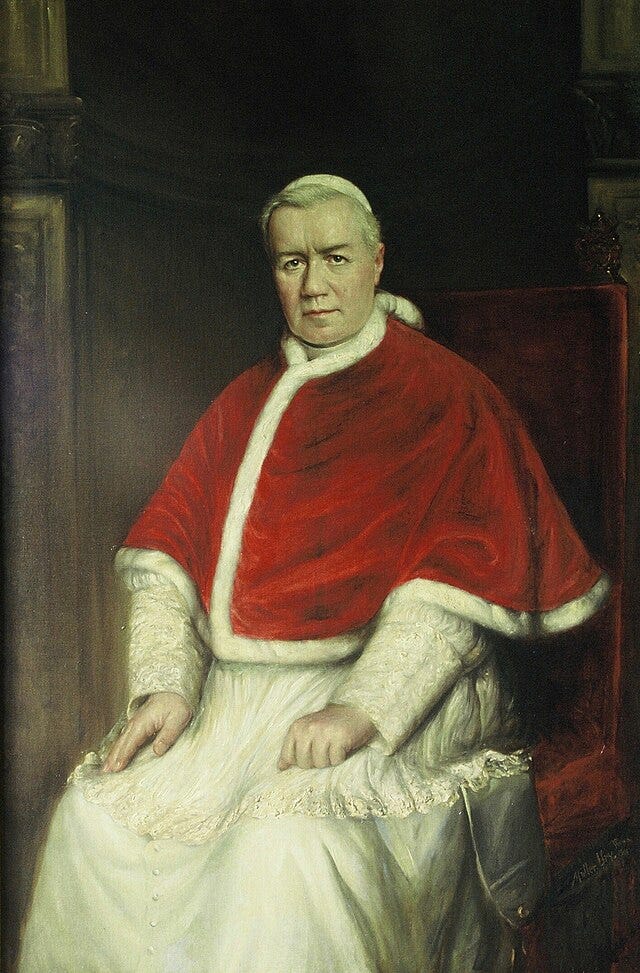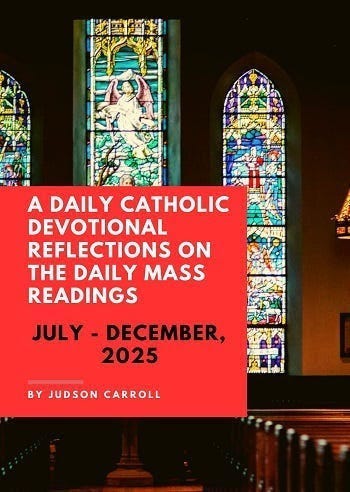Gospel Reflection for The 21st day of August in the year of Our Lord, 2025
Memorial of Saint Pius X, Pope
Matthew 22:1-14
1 And Jesus answering, spoke again in parables to them, saying: 2 The kingdom of heaven is likened to a king, who made a marriage for his son. 3 And he sent his servants, to call them that were invited to the marriage; and they would not come. 4 Again he sent other servants, saying: Tell them that were invited, Behold, I have prepared my dinner; my calves and fatlings are killed, and all things are ready: come ye to the marriage. 5 But they neglected, and went their own ways, one to his farm, and another to his merchandise.
6 And the rest laid hands on his servants, and having treated them contumeliously, put them to death. 7 But when the king had heard of it, he was angry, and sending his armies, he destroyed those murderers, and burnt their city. 8 Then he saith to his servants: The marriage indeed is ready; but they that were invited were not worthy. 9 Go ye therefore into the highways; and as many as you shall find, call to the marriage. 10 And his servants going forth into the ways, gathered together all that they found, both bad and good: and the marriage was filled with guests.
11 And the king went in to see the guests: and he saw there a man who had not on a wedding garment. 12 And he saith to him: Friend, how camest thou in hither not having a wedding garment? But he was silent. 13 Then the king said to the waiters: Bind his hands and feet, and cast him into the exterior darkness: there shall be weeping and gnashing of teeth. 14 For many are called, but few are chosen.
Today, being the Memorial of Pope Saint Pius X, I thought it appropriate to include one of his most important teachings. Saint Pius was very aware of the liberal/leftist/communist/socialist politics of his era. He knew that these grew out of what he called Modernism. This was the fruit of the so-called Enlightenment in which men came to worship politics, education, science and the state rather than God. They rejected the teachings of the Church for a secular morality. The result of this was over 200 million deaths in the 20th century directly at the hands of such governments and countless more abortions. In light of this, Pope Saint Pius X left us his Oath Against Modernism. I have taken this oath and encourage all to do likewise:
Given by His Holiness St. Pius X September 1, 1910.
To be sworn to by all clergy, pastors, confessors, preachers, religious superiors, and professors in philosophical-theological seminaries.
I firmly embrace and accept each and every definition that has been set forth and declared by the unerring teaching authority of the Church, especially those principal truths which are directly opposed to the errors of this day.
And first of all, I profess that God, the origin and end of all things, can be known with certainty by the natural light of reason from the created world (see Rom. 1:90), that is, from the visible works of creation, as a cause from its effects, and that, therefore, his existence can also be demonstrated:
Secondly, I accept and acknowledge the external proofs of revelation, that is, divine acts and especially miracles and prophecies as the surest signs of the divine origin of the Christian religion and I hold that these same proofs are well adapted to the understanding of all eras and all men, even of this time.
Thirdly, I believe with equally firm faith that the Church, the guardian and teacher of the revealed word, was personally instituted by the real and historical Christ when he lived among us, and that the Church was built upon Peter, the prince of the apostolic hierarchy, and his successors for the duration of time.
Fourthly, I sincerely hold that the doctrine of faith was handed down to us from the apostles through the orthodox Fathers in exactly the same meaning and always in the same purport. Therefore, I entirely reject the heretical misrepresentation that dogmas evolve and change from one meaning to another different from the one which the Church held previously. I also condemn every error according to which, in place of the divine deposit which has been given to the spouse of Christ to be carefully guarded by her, there is put a philosophical figment or product of a human conscience that has gradually been developed by human effort and will continue to develop indefinitely.
Fifthly, I hold with certainty and sincerely confess that faith is not a blind sentiment of religion welling up from the depths of the subconscious under the impulse of the heart and the motion of a will trained to morality; but faith is a genuine assent of the intellect to truth received by hearing from an external source. By this assent, because of the authority of the supremely truthful God, we believe to be true that which has been revealed and attested to by a personal God, our Creator and Lord.
Furthermore, with due reverence, I submit and adhere with my whole heart to the condemnations, declarations, and all the prescripts contained in the encyclical Pascendi and in the decree Lamentabili, especially those concerning what is known as the history of dogmas. I also reject the error of those who say that the faith held by the Church can contradict history, and that Catholic dogmas, in the sense in which they are now understood, are irreconcilable with a more realistic view of the origins of the Christian religion. I also condemn and reject the opinion of those who say that a well-educated Christian assumes a dual personality—that of a believer and at the same time of a historian, as if it were permissible for a historian to hold things that contradict the faith of the believer, or to establish premises which, provided there be no direct denial of dogmas, would lead to the conclusion that dogmas are either false or doubtful. Likewise, I reject that method of judging and interpreting Sacred Scripture which, departing from the tradition of the Church, the analogy of faith, and the norms of the Apostolic See, embraces the misrepresentations of the rationalists and with no prudence or restraint adopts textual criticism as the one and supreme norm.
Furthermore, I reject the opinion of those who hold that a professor lecturing or writing on a historico-theological subject should first put aside any preconceived opinion about the supernatural origin of Catholic tradition or about the divine promise of help to preserve all revealed truth forever; and that they should then interpret the writings of each of the Fathers solely by scientific principles, excluding all sacred authority, and with the same liberty of judgment that is common in the investigation of all ordinary historical documents.
Finally, I declare that I am completely opposed to the error of the modernists who hold that there is nothing divine in sacred tradition; or what is far worse, say that there is, but in a pantheistic sense, with the result that there would remain nothing but this plain simple fact—one to be put on a par with the ordinary facts of history—the fact, namely, that a group of men by their own labor, skill, and talent have continued through subsequent ages a school begun by Christ and his apostles. I firmly hold, then, and shall hold to my dying breath the belief of the Fathers in the charism of truth, which certainly is, was, and always will be in the succession of the episcopacy from the apostles. The purpose of this is, then, not that dogma may be tailored according to what seems better and more suited to the culture of each age; rather, that the absolute and immutable truth preached by the apostles from the beginning may never be believed to be different, may never be understood in any other way.
I promise that I shall keep all these articles faithfully, entirely, and sincerely, and guard them inviolate, in no way deviating from them in teaching or in any way in word or in writing. Thus I promise, this I swear, so help me God. . .
Judson Carroll is the author of several books, including his newest, A Daily Catholic Devotional, Reflections on the Daily Mass Readings July-December, 2025 It is Available in paperback on Amazon: https://www.amazon.com/dp/B0F5BHFZ7X
and
Confirmation, an Autobiography of Faith. It is also Available in paperback on Amazon: https://www.amazon.com/dp/B0C47Q1JNK
His podcast is The Uncensored Catholic https://www.spreaker.com/show/the-uncensored-catholic



